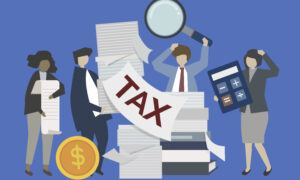
Saving money is always a priority, but the amount you save depends on your other goals, such as paying off debt. A rule of thumb is to save at least $1,000 to cover emergency expenses. Consider labeling your emergency account, “Debt-Proof Insurance.” The title is a reminder that the account exists to keep you out of debt. Without cash to pay for emergency expenses, you may find yourself in a never-ending cycle of paying off debt, having an unexpected expense, and having to use credit to pay for the cost. When your account drops below $1,000, stop extra payments towards debt and get your account back up to $1,000. Once it’s at $1,000, use the extra money to continue your debt payoff strategy.
In addition to saving for emergency expenses, save for the expenses you know will happen during the year. This includes scheduled car and home maintenance. These expenses should be a category in your budget.
Once you pay off your debt, celebrate and treat yourself (within reason). Then save at least three months of your monthly living expenses. Ideally, you want to save at least 10% of your income monthly. Prioritize savings like it’s a bill so you won’t have to pay a credit card bill instead.


